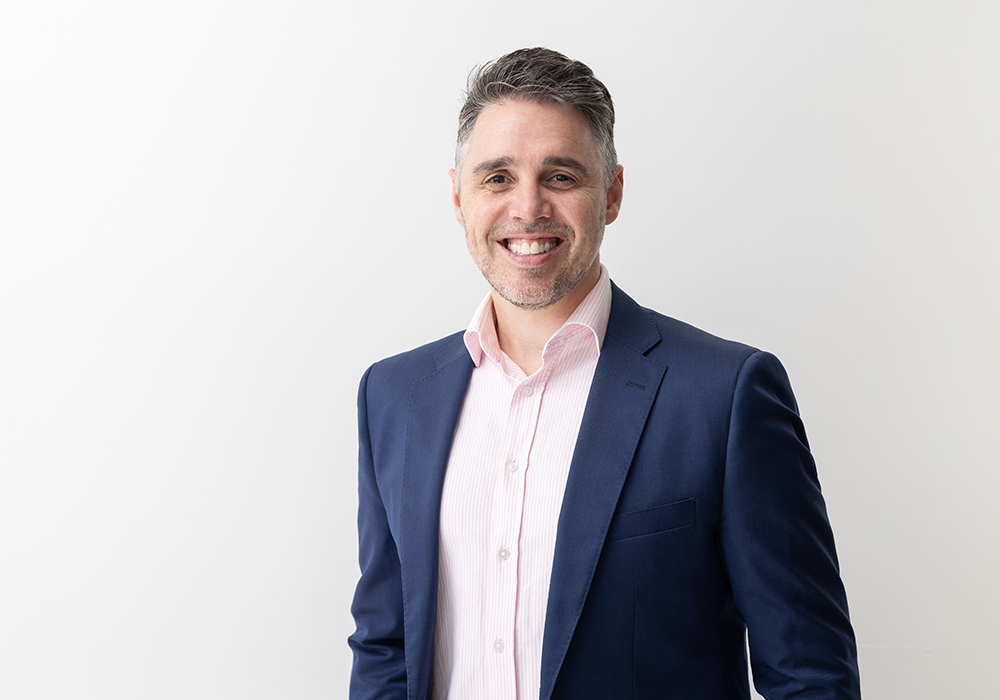Jamie Hodgson: Delivering impact where it counts


The pandemic threw a curve ball across every industry, but for Jamie Hodgson, Chief Operating Officer at Key Assets Australia , it brought home the importance of strong organisational culture and teamwork.
As a national child and family services provider assisting some of Australia’s most vulnerable people, Key Assets had to respond quickly to the many issues the pandemic created for these communities.
“What I learned is that when things are tough for some of our people, our staff and carers really stepped up. They went above and beyond their day-to-day jobs and ended up finding new opportunities to deliver services,” says Jamie.
“We provide child protection services, foster care, disability support, family support, reunification and family preservation services. It’s diverse, challenging and rewarding. There’s never a dull moment but I love it.”
It’s a demanding role, yet one that he manages to combine enthusiastically with study toward a Graduate Diploma in Social Impact at the Centre for Social Impact UNSW.
“The social impact study supports my work amazingly well. Everything that I’m doing or have done in my course, I’ve been able to apply directly to my work.”
Working as part of a system for social impact
One of these synergies is centred around the question: ‘How do we work as part of the system to get really good outcomes for communities and individuals?’
“The positive change that needs to happen for these children and their families can’t be done by one individual, or one service or government department. It comes about through lots of collaborative work with people across the sector - partners, government and our people (clients). We place them at the centre of what we do,” says Jamie.
Jamie has utilised the course to engage board members, fellow executives and staff within the organisation. This has led to conversations about what opportunities exist for the human services sector, especially those around human-centred design and collaboration.
“I wanted to ensure that we had processes designed to demonstrate to our stakeholders, to the government, to our people, around the impact that we were having. The Grad Dip really helped to develop the answers to these questions and meant I could put some systems and tools in place to bring about change.”
“We mapped the carer journey in our organisations. We did deep dive interviews and validated our insights. If we had to make a change for a carer in the system or organisation, it meant that we had the evidence. This project continues to be implemented, with the aim of having organisational impact in how we view our practice, policies and procedures,” he says.
Another project which Jamie led, involved work in a remote Australian territory where he used a human-centred, evidence-based approach from the course to undertake service system mapping.
Life-long learning through the MBAx Social Impact
Jamie started out doing an MBAx (Social Impact) but after taking a year off to focus on changes within his organisation, he was drawn back to the social impact subjects, and switched his studies to the Graduate Diploma in Social Impact.
“I like people, so I want to sit in a room, I want to debate, I want to discuss, want to unpack things - that’s how I’ve engaged with the course.”
“Growing up in a family of human service professionals, it’s always been in my blood, as I say, and it really put me on the human services path through my undergrad.”
His career has taken him to some far-flung places. From social work in Canberra, to a stint working in child protection in London, but it was his work in remote Indigenous communities in the Northern Territory, that he will never forget:
“I look back on that time as the most amazing experience of my life. Those experiences and new ways of learning and understanding traditional cultural practices still inform my work, even today.”
